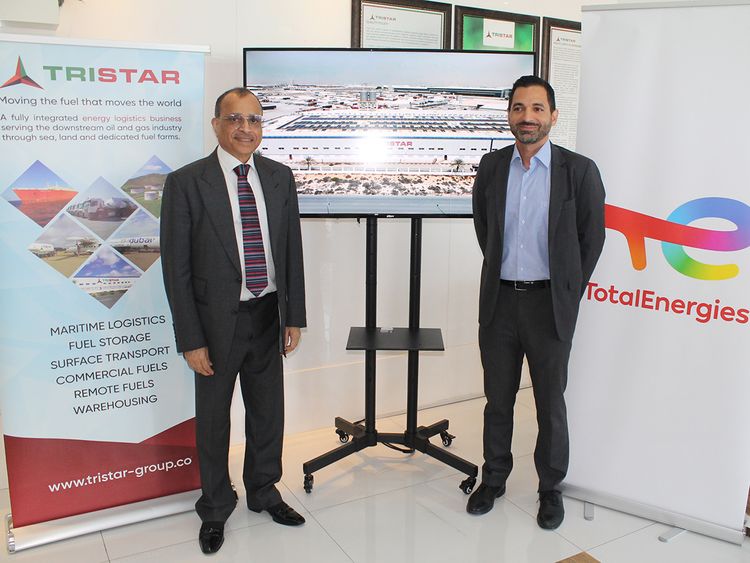Tristar Group has launched a second solar power project in Dubai, with a capacity of 464-kilowatt peak (kWp). The project is located at its specialised warehouse facility inside Jebel Ali Free Zone (JAFZA).
The firm said that this is the second project launched by the company since 2021, in partnership with TotalEnergies.
The project has 1,190 photovoltaic (PV) panels, with an annual capacity of 750 megawatt hours (MWh) of renewable electricity, which equates to 90 per cent of the facility’s total power consumption. This solar installation will enable an annual reduction of 318 tons of CO2, equivalent to planting approximately 8,200 trees per year.
“There are many routes to UAE Net Zero 2050, and Tristar has adopted a realistic and real-world approach to decarbonisation,” says Eugene Mayne, Group CEO of Tristar. “We are marking a new milestone on this transitional journey with a second solar power plant on our premises.”
“Tristar’s first solar power project is installed at its head office warehouse in Jebel Ali Industrial Area No. 2 and has a 503-kilowatt peak (kWp) system. Equipped with over 1,200 PV panels, the plant has been generating more than 800 MWh of renewable electricity every year, covering more than 95 per cent of the head office’s electricity needs. It also reduces the company’s annual carbon footprint by approximately 340 tons, equivalent to the planting of 9,000 trees per year,” said the firm.
“As one of the very first energy logistics supplier in the region, Tristar has been a customer of TotalEnergies for several years. Having launched a comprehensive sustainability initiative, Tristar first solarised their Head Office followed by this second site in Dubai and we are in positive discussions to pursue solarising additional assets,” says Georgio Akiki, Country Manager UAE & Oman at TotalEnergies Renewables Distributed Generation Middle East Africa. “It was a pleasure to partner up with Tristar and look forward to further successes in their decarbonisation journey.”
“Harnessing and deploying renewable energy simultaneously addresses the challenges of GHG (greenhouse gas) emissions and climate change, while reducing operational costs,” observes Mayne. “For instance, these solar plants almost negate our electricity consumption, while reducing a sizeable number of emissions.”
Amongst Tristar’s short- and long-term sustainability plans running on schedule, which include alternative fuels, hybrid vessels, electric vehicles (EVs), optimised operational efficiency, and assorted biodiversity conservation projects.


